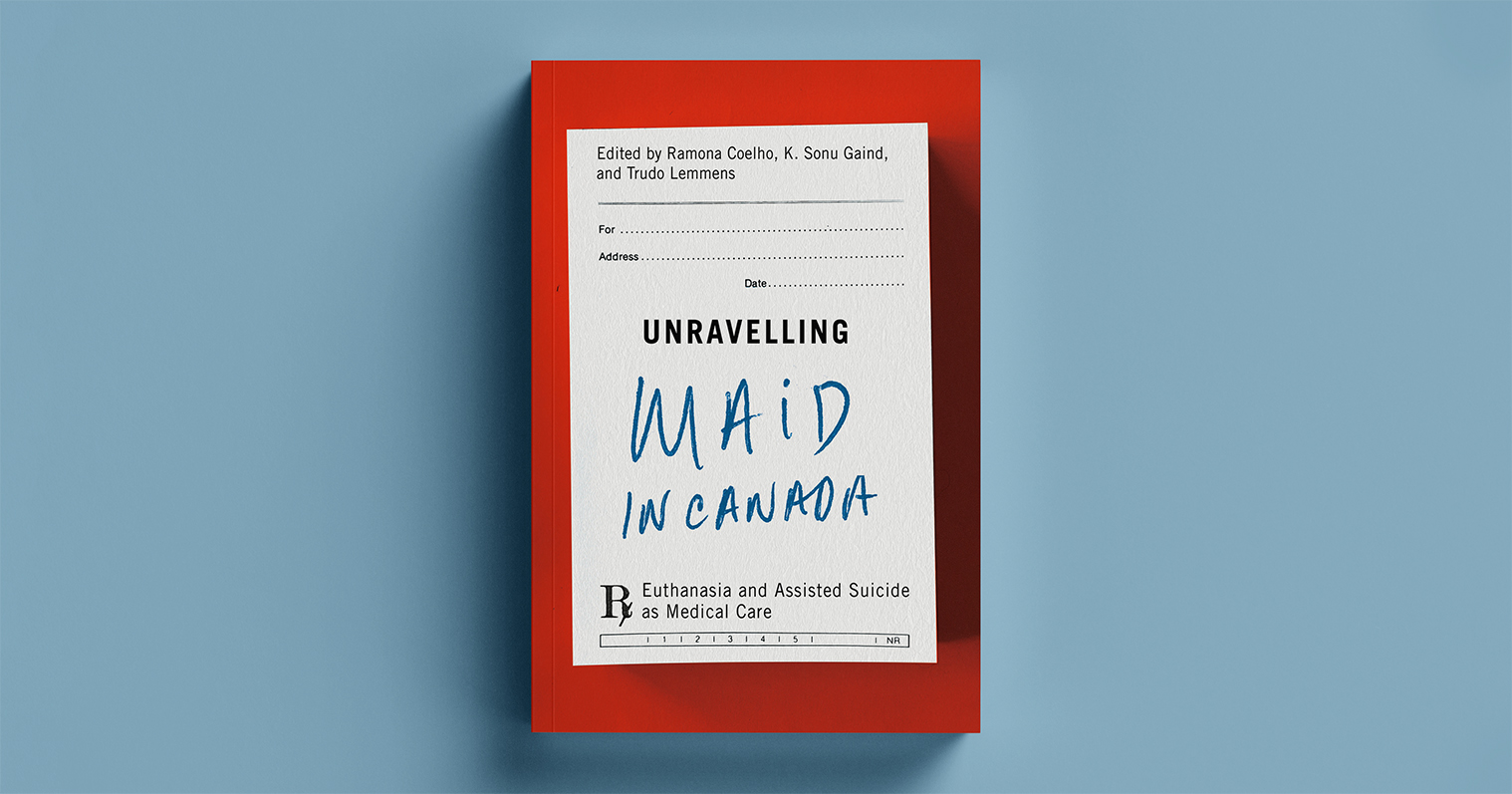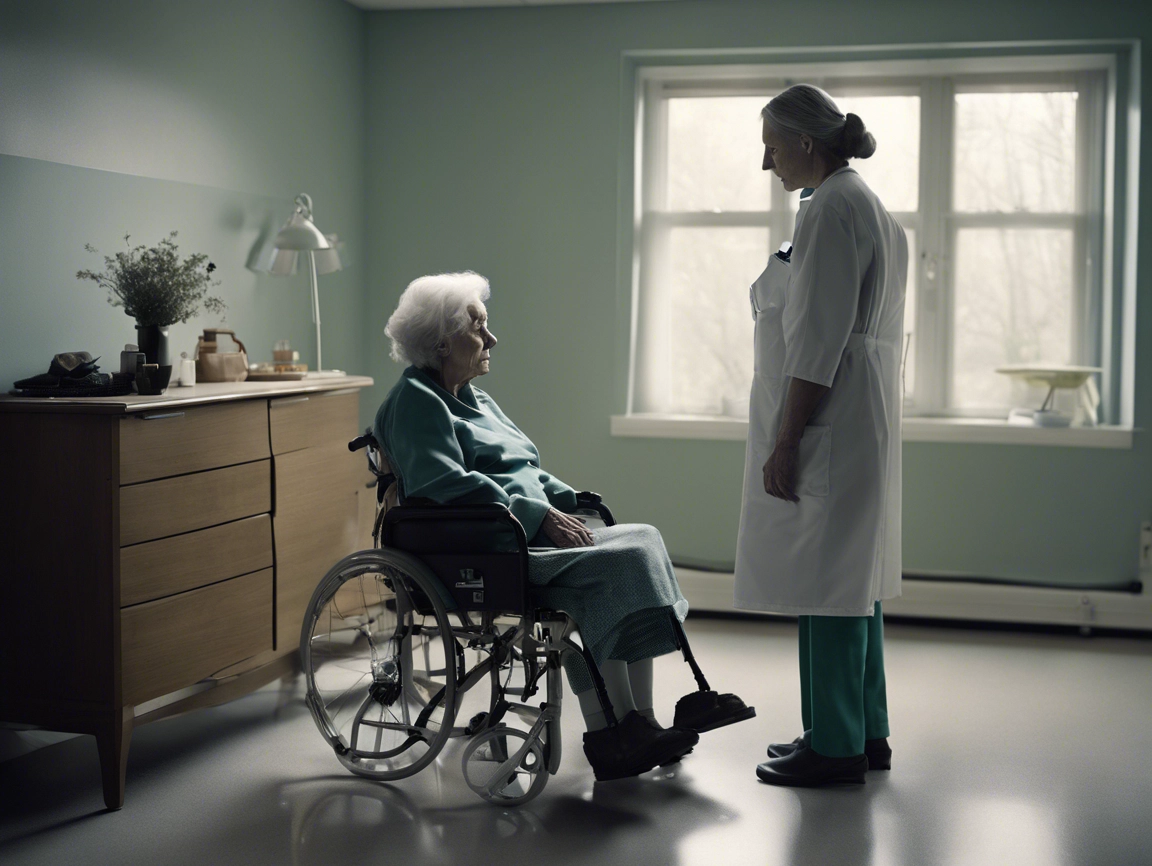Physicians’ Alliance against Euthanasia
Newsletter, July 2017
Improve care. Make Euthanasia unimaginable.
Dear friends,
In the year since euthanasia became legal, we have witnessed a powerful political push to normalize it as part of medicine in Canada. Yet many doctors remain opposed to the practice. Most would like to see it rigorously limited. And some, for reasons of personal and/or professional conscience, refuse categorically to be part of it.
Unfortunately, our politicians have made it perfectly clear that they intend to ignore the judgement of opposing doctors and to stifle their dissent. In fact, the worst of these politicians are to be found within our own profession.
Consider, as a case in point …
Sincerely,
Catherine Ferrier
President
Doctors’ voices
- Dr. Ramona Coelho on June 5, on why she won’t refer for medical aid in dying.
- Dr. Anna Towers, on June 11, debates euthanasia and palliative care on CBC’s Sunday Edition with Michael Enright, marking the anniversary of the federal law.
- An Ontario doctor on June 12 comments on the Ontario policy and the political situation in that province.
- Three letters to the National Post in June 15 (unfortunately all 3 are run together in this link) in response to an outrageous article on the Ontario lawsuit that was published a few days earlier.
- Dr. Sephora Tang, June 15 on CBC Ottawa Morning, discusses conscience protection.
- Dr. Ramona Coelho on fighting for conscience rights.
If you have an article, letter or interview relevant to our work published in any media, please let us know at info@collectifmedecins.org.
In the news
- The court challenge of the CPSO policy by a group of Ontario doctors was heard on June 13 to 15.
- Apart from the refusal of some doctors on conscience grounds, the state is finding it increasingly difficult to recruit and retain euthanasia practitioners.
And specifically, because the fees are too low. It is suggested that either fees must rise or “regulations” must be reduced. Not a reassuring prospect!
- In Quebec, lawyer Jean-Pierre Ménard has launched a challenge of the end-of-life requirement in the provincial and federal euthanasia laws, on behalf of two people with disabilities. How far we have come in a short time from the notion of euthanasia for extreme suffering at the very end of life! See a thoughtful commentary on the situation by Aubert Martin of Living with Dignity.
- An Ontario judge ruled that a woman suffering from osteoarthritis was eligible for medical assistance in dying.
A young American woman was convicted of involuntary manslaughter for urging her boyfriend to commit suicide. See Andrew Coyne’s comments on the inescapable consequences of normalising suicide.
- Recent statistics from the Netherlands show that 431 people were killed without having explicitly requested it in 2015.
From the trenches
The most effective opposition to euthanasia is to be found in the alternatives provided. High quality and readily available Palliative Care is especially important to this effort. An Ottawa man describes his experience surrounding his wife’s death and offers an analysis and future prescriptions.
Acclaimed disability scholar and Officer of the Order of Canada, Catherine Frazee pushes back on the suggestion that references to the Nazi euthanasia program are off limits (that is the history of euthanasia, and it is unacceptable to suppress this unique and relevant source of experience and knowledge).
The Canadian Medical Protective Association offers its analysis of the situation one year after adoption of the federal euthanasia law. Despite the motions adopted at the 2015 Annual Meeting in support of the CMPA defending conscience rights, we have not seen any positive action in that regard.
Analysis of the first year by Alex Schadenberg of the Euthanasia Prevention Coalition.
Another from the Catholic Register, including interviews with several physicians.
Some thoughtful comments on the conscience question:
John Carpay of the Justice Centre for Constitutional Freedoms on whether the government should be able to force a person to do something that she or he considers to be fundamentally wrong.
Barbara Kay of the National Post on why conscientious objectors shouldn’t be shunned for holding to the originalist criterion of their vocation.
If you have experiences related to our work that you would like to share with your colleagues, please send it to info@collectifmedecins.org.
Resources
Need information or guidance on palliative care? Visit Palli-Science or the Canadian Virtual Hospice.
The Canadian Virtual Hospice is offering a course on the use of Methadone for Pain in Palliative Care.
Palli-Science offers the 2017 edition of its palliative care Mini-guide.
Doctors facing pressure to violate their conscience are invited to call the Canadian Physicians for Life (CPL) Crisis Line. You must be a member of CPL to use this free service.
A new book has been published by McGill law professor Pierre Deschamps, on the Quebec and federal euthanasia laws.
We were reminded of the not-so-new, but very worthwhile, book Dignity Therapy: Final Words for Final Days, by Dr. Harvey Max Chochinov, in this recent article by Margaret Somerville.
Events
The deVeber Institute for Bioethics and Social Research: One Year Later: The Aftermath of Assisted Suicide in Canada, Friday July 28th, 2017. Speakers: Dr. Ramona Coelho, Alex Schadenberg, lawyer Albertos Polizogopoulos and others. For information and to register visit the deVeber website.
In the literature
Canadian Journal of Psychiatry, January 2017 [Epub ahead of print]. A National Survey of Canadian Psychiatrists’ Attitudes toward Medical Assistance in Death. “This study found that most psychiatrists do not support the legalisation of MAID for mental illness, despite being quite supportive of MAID in general. Objections seemed to be based upon concern for vulnerable patients, personal moral objections, and concern for the effect it would have on the therapeutic alliance.”
Groupe de recherche sur la souffrance psychique et l’AMM, Département de psychiatrie, CHUM et CRCHUM. Mai 2017. Exploration de la souffrance psychique dans le cadre d’une demande d’aide médicale à mourir.
CMAJ, June 26, 2017. Medical assistance in dying: time for physicians to step up to protect themselves and patients. Analysis of the current situation in Canada from a very pro-euthanasia stance, assuming it is a service that must be provided. Dr. James Downar, a well-known euthanasia proponent, is a member of the Physicians Advisory Committee for Dying with Dignity Canada. Dr. Louis Hugo Francescutti was president of the Canadian Medical Association in 2013-14. The article criticizes the fact that physicians have been largely excluded from setting limits and definitions for “medical assistance in dying”.
BMC Psychiatry, June 2017. Euthanasia for people with psychiatric disorders or dementia in Belgium: analysis of officially reported cases. “The proportion of euthanasia cases with a psychiatric disorder or dementia diagnosis was 0.5% of all cases reported in the period 2002-2007, increasing from 2008 onwards to 3.0% of all cases reported in 2013.”
Palliative & Supportive Care, published online 29 June 2017. The care experiences of patients who die in residential hospice: A qualitative analysis of the last three months of life from the views of bereaved caregivers. Survey completed by bereaved caregivers of patients who had died in 16 residential hospices in Ontario.
If you come across articles that could be of interest to colleagues in the Alliance please send the reference to info@collectifmedecins.org.
SUPPORT OUR EFFORTS so that we can continue to speak on your behalf:
Increase our media impact:
- Invite your entourage to become a supporter of the Physicians’ Alliance >>
- Invite your entourage to follow us on Twitter >>
- Invite your entourage to like our Facebook page >>
- Invite your entourage to subscribe to our Youtube channel >>



